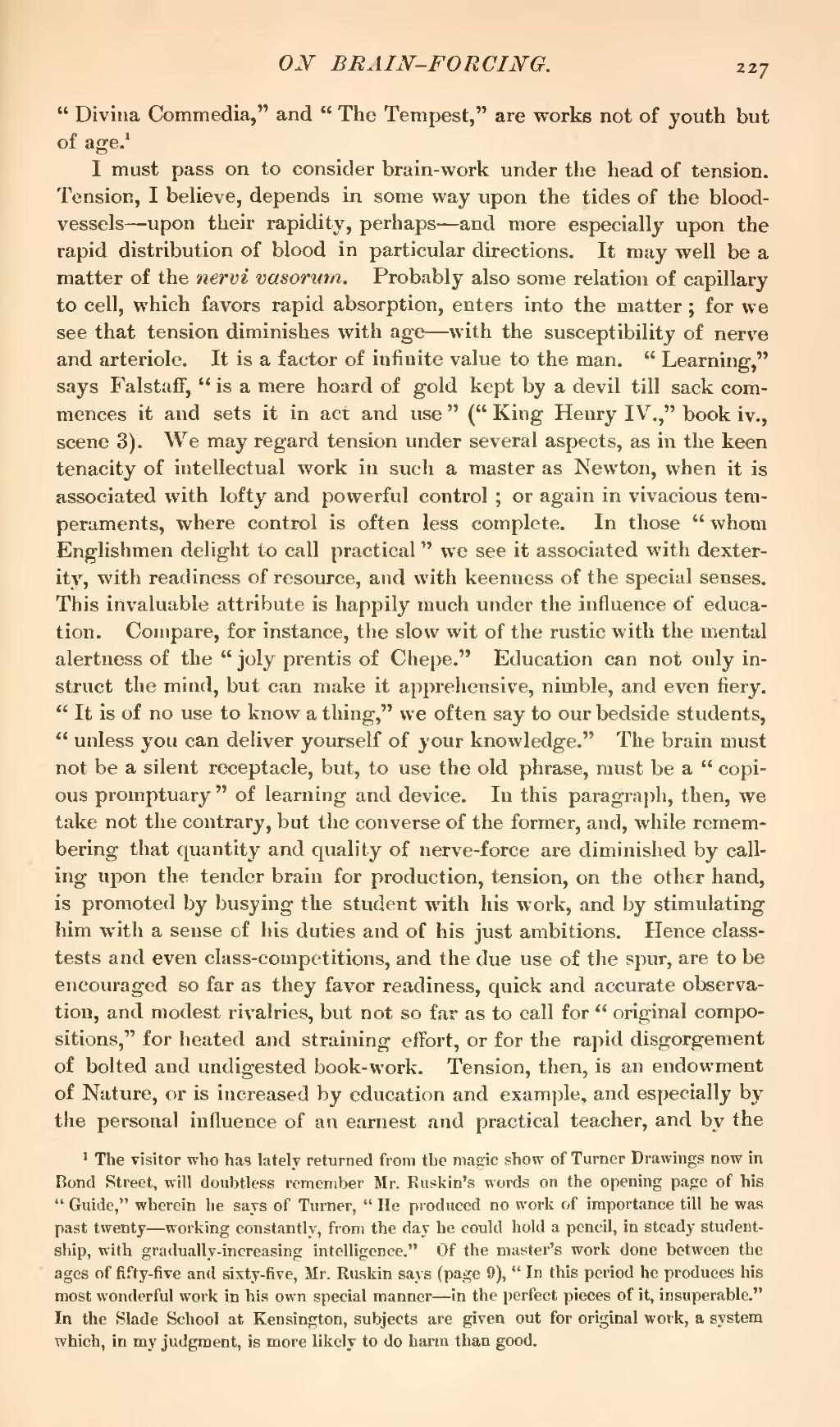"Divina Commedia," and "The Tempest," are works not of youth but of age.[1]
I must pass on to consider brain-work under the head of tension. Tension, I believe, depends in some way upon the tides of the blood vessels—upon their rapidity, perhaps—and more especially upon the rapid distribution of blood in particular directions. It may well be a matter of the nervi vasorum. Probably also some relation of capillary to cell, which favors rapid absorption, enters into the matter; for we see that tension diminishes with age—with the susceptibility of nerve and arteriole. It is a factor of infinite value to the man. "Learning," says Falstaff, "is a mere hoard of gold kept by a devil till sack commences it and sets it in act and use" ("King Henry IV.," book iv., scene 3). We may regard tension under several aspects, as in the keen tenacity of intellectual work in such a master as Newton, when it is associated with lofty and powerful control; or again in vivacious temperaments, where control is often less complete. In those "whom Englishmen delight to call practical" we see it associated with dexterity, with readiness of resource, and with keenness of the special senses. This invaluable attribute is happily much under the influence of education. Compare, for instance, the slow wit of the rustic with the mental alertness of the "joly prentis of Chepe." Education can not only instruct the mind, but can make it apprehensive, nimble, and even fiery. "It is of no use to know a thing," we often say to our bedside students, "unless you can deliver yourself of your knowledge." The brain must not be a silent receptacle, but, to use the old phrase, must be a "copious promptuary" of learning and device. In this paragraph, then, we take not the contrary, but the converse of the former, and, while remembering that quantity and quality of nerve-force are diminished by calling upon the tender brain for production, tension, on the other hand, is promoted by busying the student with his work, and by stimulating him with a sense of his duties and of his just ambitions. Hence class tests and even class-competitions, and the due use of the spur, are to be encouraged so far as they favor readiness, quick and accurate observation, and modest rivalries, but not so far as to call for "original compositions," for heated and straining effort, or for the rapid disgorgement of bolted and undigested book-work. Tension, then, is an endowment of Nature, or is increased by education and example, and especially by the personal influence of an earnest and practical teacher, and by the
- ↑ The visitor who has lately returned from the magic show of Turner Drawings now in Bond Street, will doubtless remember Mr. Ruskin's words on the opening page of his "Guide," wherein he says of Turner, "He produced no work of importance till he was past twenty—working constantly, from the day he could hold a pencil, in steady studentship, with gradually-increasing intelligence." Of the master's work done between the ages of fifty-five and sixty-five, Mr. Ruskin says (page 9), "In this period he produces his most wonderful work in his own special manner—in the perfect pieces of it, insuperable." In the Slade School at Kensington, subjects are given out for original work, a system which, in my judgment, is more likely to do harm than good.
